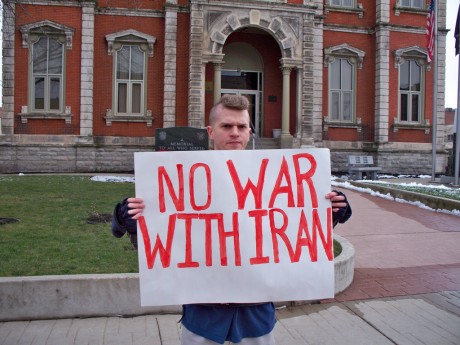The New York Times, March 8, 2012
Might Israel attend the meeting about a nuclear weapon free Middle East in Finland? Certainly. Just like it has “participated” in the peace process–with no real intention of making concessions. In both cases, there are no consequences for Israel sticking to its agenda. So why would Israel budge?
Israel won’t sign a nonproliferation treaty because that would mean giving up its military edge in the Middle East. Obama’s speech to AIPAC suggests that the US will ensure that Israel remains the regional powerhouse
And this question has arisen before, in 2010, when Netanyahu and Obama were already in office. The US supported the initiative; Israel, of course, rejected it.
What’s changed since then? Little to nothing. If anything, Israel has only become more defiant. Last year, Obama called for an Israeli-Palestinian peace deal based on 1967 borders. But 2011 saw Israel increase settlements in the West Bank as well as demolitions of Palestinian and Bedouin structures in the West Bank and East Jerusalem. The United Nations reports that the rate of demolitions in 2012 is already higher than it was last year.
But, for me, where it gets really interesting is that the US initially wanted Israel to sign the non-proliferation treaty, back in the late 1960s, and Israel wouldn’t. This is a reminder that the six decades of friendship Obama spoke of earlier this week weren’t always so friendly. Some argue that Israel’s refusal to sign this treaty may have given Iran the incentive to go nuclear. It’s similar, perhaps, to how Israel had a hand in creating Hamas. Israel wanted a rival to Fatah; instead, it got, as the Wall Street Journal says, “unintended and often perilous consequences.”
Speaking of Israel creating its own boogeyman, a pre-emptive strike on Iran might actually push Iran to accelerate its nuclear program, as it has been argued was the case with Israel’s 1981 strike on Iraq—creating exactly the scenario Israeli leaders fear the most.
